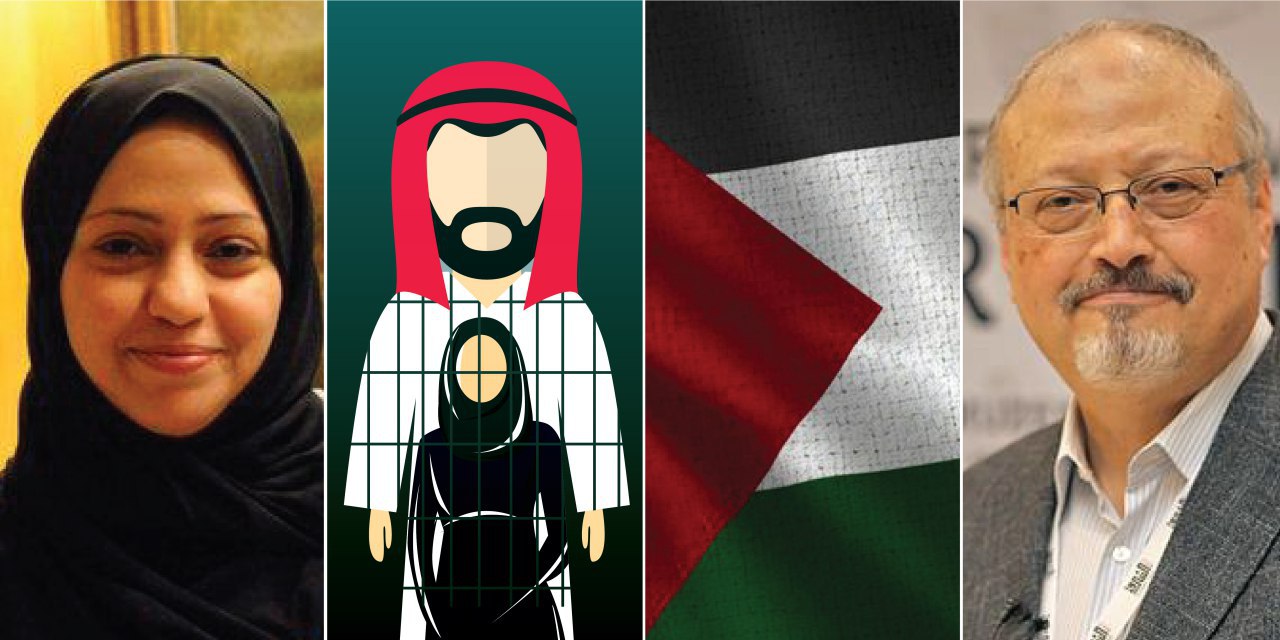
Six Female Detainees
The first case raised by special rapporteurs and sent to Saudi Arabia on February 8, 2019, concerns six female detainee victims and information regarding their subjection to torture, sexual abuse, and mistreatment in prison. The rapporteurs expressed their concerns for the physical and mental safety of the detainees after their brutal treatment, and they also reiterated their concern over the apparent lack of safeguards in legal proceedings, emphasizing that the women’s detentions were retaliation for exercising their legal rights to freedom of opinion and expression and for advocating for human rights. The letter noted concern over the fact that the abuses perpetrated against two female human rights advocates were reported as acts of intimidation and retaliation for their cooperation with UN mechanisms.
Lack of Nationality
On February 15, 2019, three special rapporteurs communicated with Saudi Arabia regarding the case of Hatem Faraj Allah, a Palestinian citizen born in Saudi Arabia, and his father, Mr. Majid Faraj Allah, noting that their situation is akin to statelessness.
The rapporteurs expressed their serious concern regarding the two men’s reported legal status, given that they are deprived of identity and travel documents, as well as official residency in Saudi Arabia. The complaint underscored that their status poses a major risk to their human rights, including obtaining education, medical care, and an appropriate standard of living. If the complaint is not resolved, there will be negative legal repercussions as a result of the lack of nationality, including arrest and possible deportation.
Male Guardianship
On February 22, 2019, four special rapporteurs sent a letter to the Saudi government regarding the legislation and societal practices surrounding male guardianship in Saudi Arabia, including the Absher smartphone application that conflicts with international human rights principles and standards.
The rapporteurs expressed their concern regarding the effects of this application on women’s rights, given that it introduces discrimination against women and limits their rights, including freedom of movement, education, and employment, and their access to justice, privacy, and a private life.
The letter explained that despite claims of reforms expected to limit the influence of male guardianship over women, there is concern that the Absher application’s function to control women’s travel is a step backward, allowing male guardians to control women and restrict their freedom of movement in ways incompatible with their enjoyment of human rights. The application may also increase the risks faced by women trying to flee persecution or abusive families. The rapporteurs called on the Saudi government to increase its efforts to abolish male guardianship in law, practice, and the judiciary without delay.
The Case of the Jamal Khashoggi Killing
On February 25, 2019, four special rapporteurs sent a letter to the Saudi government regarding the trial of Saudi officials facing execution on charges of participating in the murder of journalist Jamal Khashoggi. The rapporteurs explained that there must be a clear mechanism to state the circumstances of Saudi Arabia’s investigation into the case and the information it obtained, including the whereabouts of Khashoggi’s remains. The rapporteurs confirmed that there are criminal proceedings arising from the investigations, to establish full accountability of those responsible and provide sufficient information, and they likewise stressed the importance of finding remedies for the victim’s relatives. The letter emphasized that the proceedings must be carried out by a competent, independent, and impartial judicial authority, in accordance with international fair trial standards and due process, including public sharing of information.
The ESOHR’s examination of many of Saudi Arabia’s responses to the special rapporteurs confirms that the government provides misleading responses lacking the type of positive engagement that might be interpreted as good intentions leading to the cessation or lessening of violations. This indicates Saudi Arabia’s lack of seriousness in engaging with various UN processes. Saudi Arabia’s multiple, continued, repeated, and intensifying violations, despite the 95 letters it has received from rapporteurs over the past nine years, is a clear indication of the need to take more effective steps vis-à-vis the Kingdom, especially by the Human Rights Council, of which Saudi Arabia is a member for the fourth time.
